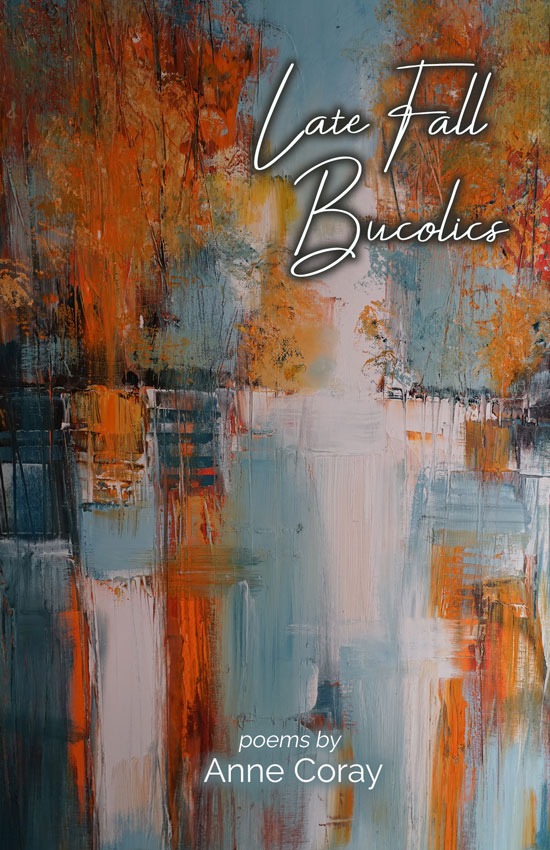First Infraction
Saturated air, the pass immersed
In fog. We still can’t fly, although the rain
This day has ceased its drumming. A burst
Of sun emblazons one wing of our plane
That sits on rocky beach, tied down, fueled
Up. What a lovely color: its body a warm
And deep maroon, with accents black. The cool
Steel frame in my palm makes me forget the harm
The engine causes, … (excerpt from “First Infraction” first appearing in Kestrel)
Anne Coray, a lifelong Alaskan, is keenly aware of climate change. The 24 sonnets of Late Fall Bucolics explore global warming and examine the aftermath of fire through Greek myth as well as the history of match making, with its devastating effects on factory workers. With nods to DaVinci and Matisse, she weaves in themes of art with her idea that humans are painting (or remaking) our earthly landscape. Many of these poems were not only inspired by poets such as Blake, Neruda, and Plath, but also pay homage to today’s young activists, such as Greta Thunberg.
“…the consistent flashes of play here, the continual linguistic energy, and most centrally the poet’s enduring gaze—even at her own culpability—create a voice urgent and desirous, perhaps even hopeful, that something remains of place.” —Gaylord Brewer, author of Worship the Pig
“Late Fall Bucolics thrums with art, fire, warmth, the embers of autumn-upon-winter in the hearth and landscape—and how to grapple with our place in the Anthropocene.” —Elizabeth Bradfield, author of Toward Antarctica
You can find Late Fall Bucolics here.
Anne Coray has generously offered to donate $5 US dollars, per copy of Late Fall Bucolics sold during the pre-order period, to Ukraine (via AirBnB’s program) to help those in need. This pledge is good until June 20 2022.
Anne Coray is the author of the novel Lost Mountain (West Margin Press) as well as three poetry collections—Bone Strings, A Measure’s Hush, and Violet Transparent. She is also the coauthor of Crosscurrents North, Alaskans on the Environment. The recipient of fellowships from the Alaska State Council on the Arts and the Rasmuson Foundation, she divides her time between her birthplace on remote Lake Clark (Qizhjeh Vena) and the coastal town of Homer, Alaska. You can learn more here.

